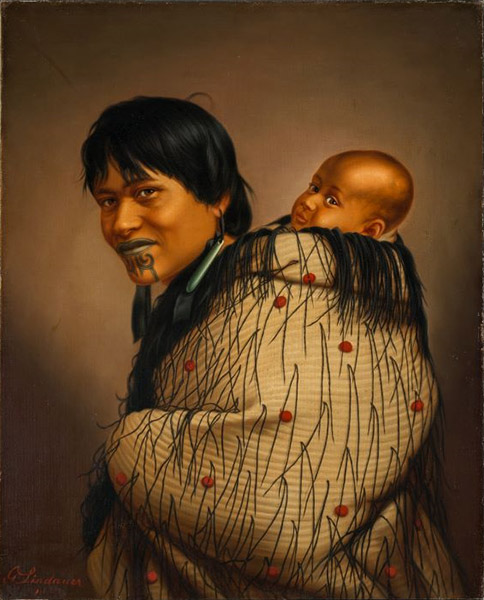Tuesday 18 October 2016
The Māori Portraits: Gottfried Lindauer’s New Zealand opens this Saturday 22 October at Auckland Art Gallery Toi o Tāmaki.
The free exhibition of more than 120 portraits by artist Gottfried Lindauer features prominent Aotearoa New Zealand historical figures and rangatira (chiefs) from the late 19th and early 20th centuries.
These include the second Māori King, Tawhiao, of Ngāti Mahuta; Tamati Waka Nene; James and Isabella Dilworth; Bishop Selwyn, and many more.
Auckland Art Gallery Director Rhana Devenport invites all New Zealanders and international visitors to The Māori Portraits.
‘This exhibition offers a very rare opportunity to experience in one place so many original portraits by Lindauer of Māori and Pākehā ancestors from all over the country.’
‘These unique paintings depict in vibrant – almost living – colour, a time in New Zealand’s history that was otherwise only captured in early black and white photography,’ she says.
Guest curator of the exhibition Ngahiraka Mason says Lindauer’s Māori portraits reveal a long history of engagement with protagonists from New Zealand’s past, when he started painting tipuna Māori (Māori ancestors) in 1875.
‘These artworks, although impressive in their own right, are more than just portraits, they’re living connections to the past,’ she says.
Lindauer travelled extensively throughout New Zealand, painting Māori chiefs and leaders. Works in The Māori Portraits are arranged by iwi (tribes), from the top of the North Island to the bottom of the South.
Iwi are represented by region: Te Tai Tokerau; Waikato, Tainui; Hauraki, Marutūāhu; Mātaatua; Te Arawa; Te Tairāwhiti; Te Matau a Māui; Taranaki; Whanganui; Te Wai Pounamu and Ngāti Toa, Te Ăti Awa.
Living descendants of many of those depicted in the portraits will travel to the Gallery from around the country and will contribute to a lively programme of talks and discussions throughout the course of the exhibition. They will share stories of their ancestors and, where known, explain their ancestor’s relationship to Lindauer.
Lindauer’s personal history, from his art education in Europe and his emigration to New Zealand, to his artistic developments upon arrival, are highlighted, bringing new insights to the relevancy of his life’s work in the 21st century.
New ways of understanding how this period of historic change, colonisation and bicultural contact was visually recorded are investigated in the exhibition, as is the role of photography in the creation of Lindauer’s portraits is explored.
Alongside the exhibition, the Gallery is running a small companion show, Identifying Lindauer: His Materials and Techniques. This examines Lindauer’s artistic techniques and provides insights by comparing a number of his original works with a known forgery.
(ends)

